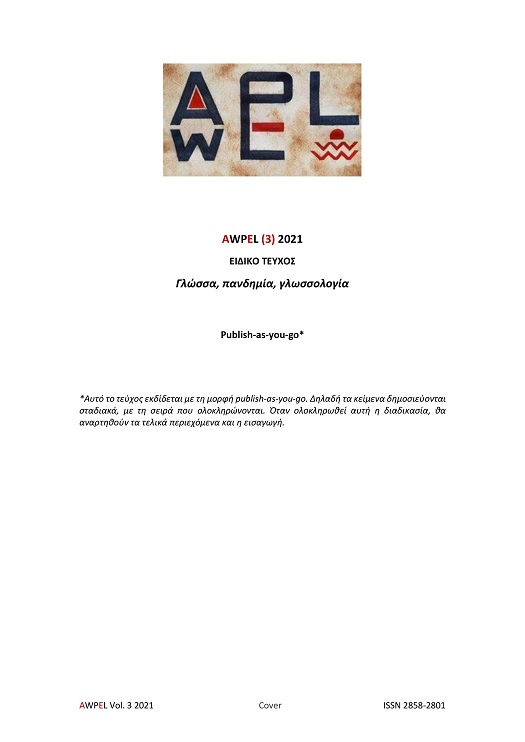Face covering as a social practice The rhetoric of anti-/masking during the COVID-19 pandemic in the Greek digital public sphere
Resumen
During the COVID-19 pandemic, early public health messages about masking led to public confusion due to conflicting statements, rendering masks a controversial sociopolitical issue. This study employs computer-mediated discourse analysis and tools developed by the discourse-historical approach to explore discourse topics and (anti-/pro-)masking rhetoric patterns in the content of (a) a Greek news video posted on a news site on Facebook, and (b) a corpus of 44 online Facebook comments posted in response to (a). The findings of the study point out that, in the context of the post-truth era, conflicting messages on public health have resulted in politicization of masking and to polarization over socially un-/acceptable behavior. Face covering thus constitutes a sociospatial practice in the process of becoming a form of politic behavior, which is contested among members of Greek society.
Article Details
- Cómo citar
-
Kitsiou, R. (2022). Face covering as a social practice: The rhetoric of anti-/masking during the COVID-19 pandemic in the Greek digital public sphere. Aegean Working Papers in Ethnographic Linguistics, 3, 273–291. Recuperado a partir de https://ejournals.epublishing.ekt.gr/index.php/awpel/article/view/30653
- Sección
- Articles

Esta obra está bajo una licencia internacional Creative Commons Atribución 4.0.
Authors who publish with this journal agree to the following terms:
Authors retain copyright and grant the journal right of first publication with the work simultaneously licensed under a Creative Commons Attribution licence that allows others to share the work with an acknowledgement of the work's authorship and initial publication in this journal.
Authors are able to enter into separate, additional contractual arrangements for the non-exclusive distribution of the journal's published version of the work (e.g. post it to an institutional repository or publish it in a book), with an acknowledgement of its initial publication in this journal.
Authors are permitted and encouraged to post their work online (preferably in institutional repositories or on their website) prior to and during the submission process, as it can lead to productive exchanges, as well as earlier and greater citation of published work (See The Effect of Open Access).



